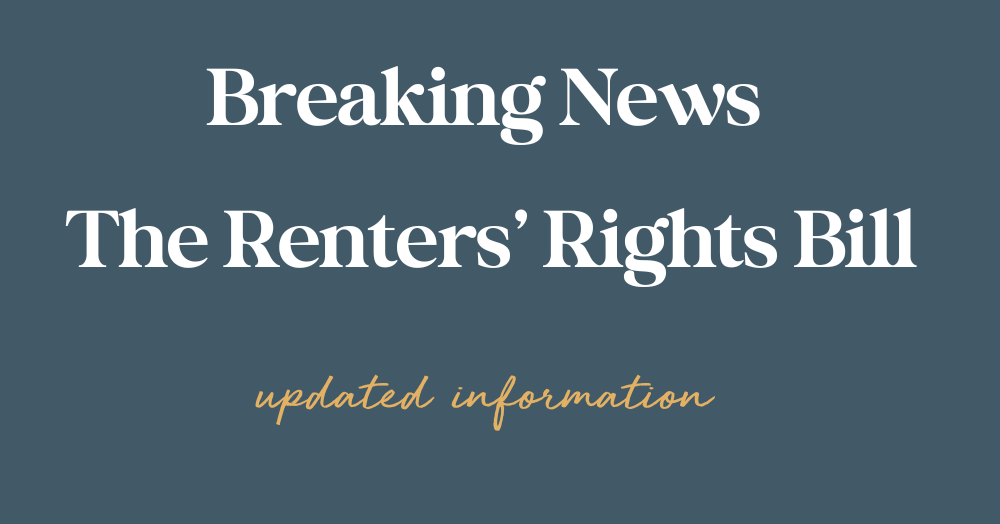The Government has announced the biggest changes to the private rented sector in decades, with new rules arriving in stages from 2026. To help landlords stay informed and prepared, we’ve outlined what each phase means and how these reforms may affect your tenancies.
Major Changes Ahead: What Landlords need to know about the upcoming Rental Reforms: The Government has confirmed a phased rollout of the biggest changes to the private rented sector in decades. These reforms will reshape how tenancies work, how rents are reviewed, and the rights and responsibilities of both landlords and tenants.
As always, we are here to support you through each stage. Below is a clear breakdown of what to expect, starting with the most significant changes arriving in Phase 1 from 1 May 2026.
Phase 1 – From 1 May 2026: The Biggest Shift for Landlords and Tenants
From this date, every existing tenancy will automatically transfer into the new system. Any tenancy starting on or after 1st May 2026 will follow the new rules from day one.
Here’s what’s changing:
Key Reforms Coming in Phase 1
- All tenancies become periodic - Fixed-term tenancies will be replaced by a single system of periodic agreements.
- Section 21 is abolished - “No fault” evictions will no longer be available after this date.
- A cap on rent in advance - Limits will be placed on how many months’ rent can be taken upfront.
- Anti-discrimination measures - Designed to ensure fair and equal access to rental homes.
- A ban on rental bidding - Tenants cannot be encouraged or permitted to offer above the advertised rent.
- Annual rent increases via Section 13 only - This formal process will become the sole route for increasing rent.
- A new right for tenants to request a pet - Landlords must consider requests and cannot unreasonably refuse them.
We work with Goodlord for referencing and tenancy agreement preparation, and we expect full support during this transition. Our internal computing systems are also updating its systems to accommodate the new legislation, so we are well placed to manage these changes smoothly on your behalf.
Section 21 Notices – What Happens Now?
Any Section 21 notice served before 1 May 2026 will still be valid until:
- The full six-month notice period has expired, or
- The tenant leaves — whichever happens first
After 1 May 2026, Section 21 will no longer exist.
There is some clarification still expected, but at present it appears that a notice served up to 30 April 2026 will still stand, provided the correct notice period is given. We will confirm this once further guidance is released.
We would avoid leaving until the last minute though and if this is the route you wanted to go down, serving notice in February would be advisable. Please call us to discuss.
Written Statements – What Landlords Must Provide
All new tenancies beginning after 1 May 2026 will require a written tenancy agreement containing specific information set out by the Government (to be published in due course).
For existing tenancies:
- You will not need to replace the current agreement.
- You will need to provide tenants with a Government-issued information sheet explaining how the reforms affect their tenancy — similar to the current How to Rent guide.
For tenancies with no written agreement (for example, verbal agreements or historic arrangements), landlords must supply a written document including all required information.
This won't affect any of our managed properties, but may apply to private or let only landlords.
Phase 2 – Arriving in Late 2026
This phase introduces two important new systems:
- A new Landlord Ombudsman - All landlords will be required to join.
- PRS Database (Private Rental Sector Database) - A central register that all landlords must be listed on.
These changes aim to improve transparency and raise standards across the sector.
Phase 3 – Timing To Be Confirmed
The final stage includes reforms already applied to social housing:
- Introduction of the Decent Homes Standard
- Implementation of Awaab’s Law
There are early suggestions that these may be brought forward sooner than currently expected, despite consultations originally forecast for 2035–2037.
We’re Here to Guide You Through Every Step
These reforms represent a major shift for landlords, but you won’t be navigating them alone. As more detail becomes available, we will continue to update you and ensure your tenancy agreements, paperwork, and processes remain fully compliant.
If you’d like tailored advice about your property or portfolio, our experienced team is here to help.
Get in touch and we’ll talk you through exactly how these changes may affect you.
